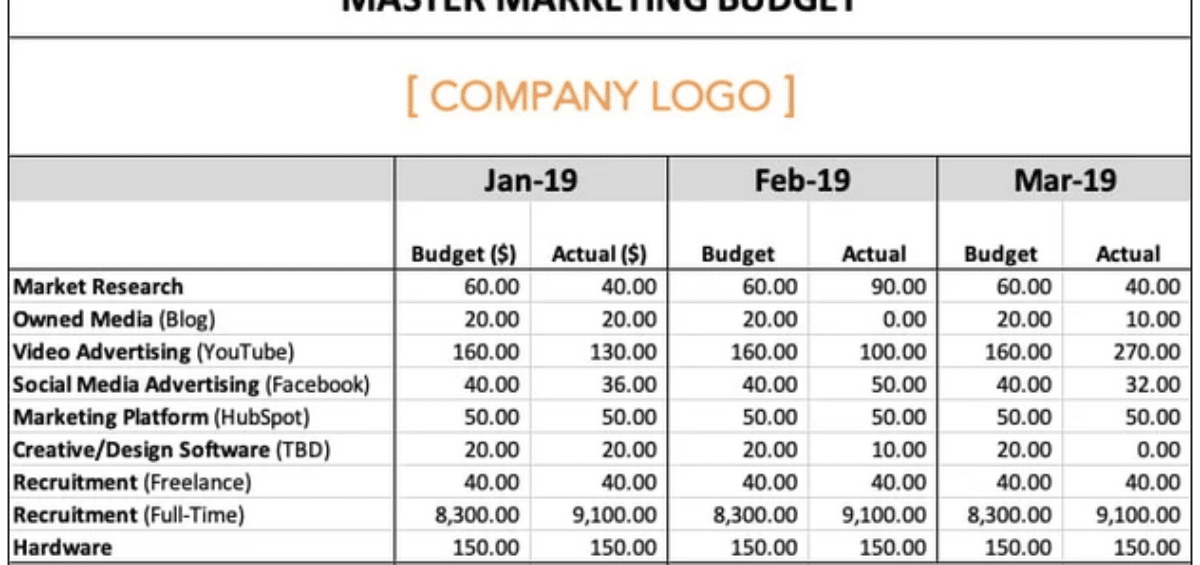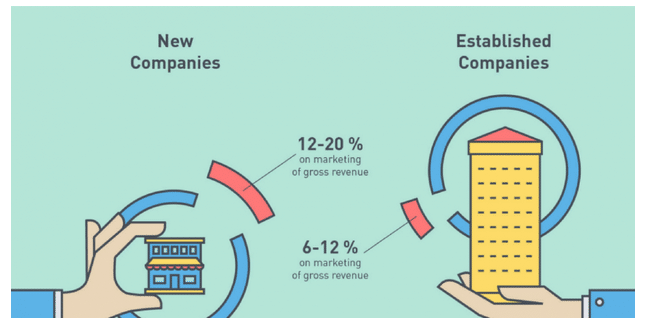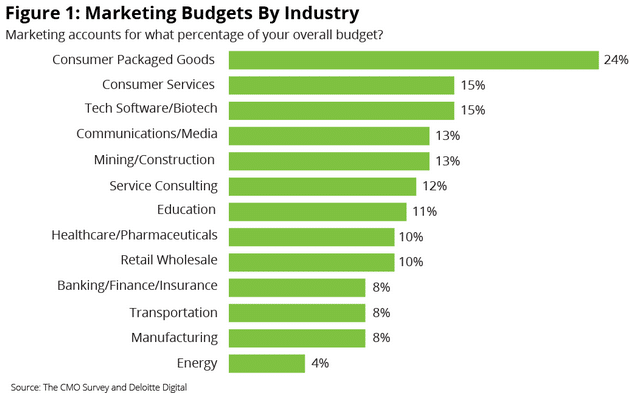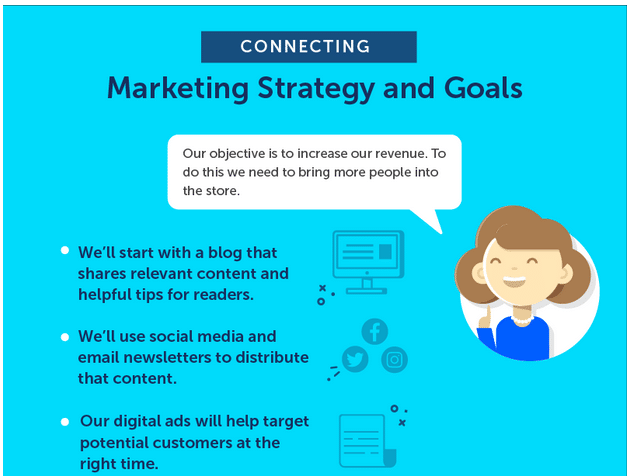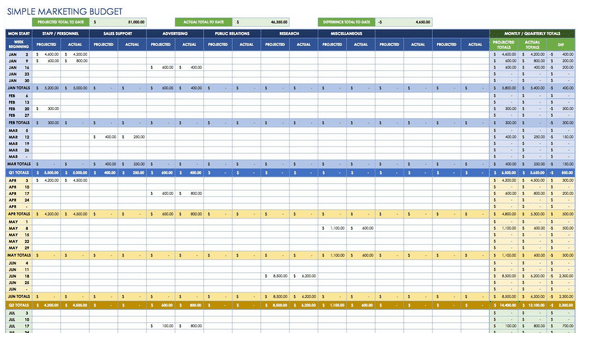You know you need to include visual marketing and content marketing in your marketing campaigns. Creating content is key to any type of marketing campaign. But do you know how to budget for the accompanying marketing expenses?
Having a clear idea of your marketing budget will help you put together a more effective marketing plan. The growth and success of your business will depend largely on this plan, so it is important to know how much you have to set aside for marketing. Always make sure that your marketing budget takes into account a full range of marketing services.
Planning out your budget will also help you figure out the most effective ways to get customers, encourage repeat business, and build brand loyalty. Given the long-term benefits that you will get, you could think of your marketing expenses as an investment rather than a cost.
Some marketing expenses are rather easy to account for, while others depend completely on how you use various forms of marketing. Take your company blog, for example. If you only post one blog post a week, this is going to be much more cost efficient than paying someone to create five blog posts a week. However, publishing content on a frequent and regular basis should be a top priority.
What Is a Typical Marketing Budget for a Startup or Small Business?
Startups and smaller companies obviously don’t have the same financial resources as larger corporations. Because of their smaller marketing budgets, smaller companies have to be more strategic with how they spend their money. Some businesses have been able to build their company from the ground up thanks to effective marketing.
Research conducted by Sageworks shows that small businesses spend about 1% of their annual earnings on advertising rather than marketing or PR. Although that doesn’t seem like much, smaller firms will usually find this sufficient to cover their marketing needs.
If you make $500,000 a year, you might spend about $5,000 on marketing. You could spend more or less depending on your business goals. You should also figure out whether you need to spend more on visual aids and graphics, branding, social media, and so on.
You might have to allot more or less for your digital marketing budget depending on the industry you operate in. Retail businesses typically spend as much as 4% of their annual revenue on marketing, since their business is so dependent on attracting new customers.
On the other hand, manufacturers may spend as little as 0.7% of their sales revenue on marketing. The goal, of course, is to spend your money where it will achieve a high strong ROI.
An important factor to consider is that video marketing tends to provide a high conversion rate when planned for and implemented properly. In fact, video marketing can be your most effective marketing strategy when leveraged correctly.
How to Plan Your Marketing Budget
Check out the image below to get a good idea of how different industries budget for marketing.
Planning your budget is essential for ensuring that you get the most benefit from your marketing. Without a solid plan in place, you run the risk of spending too much on areas that won’t get you perceivable benefits and too little on areas that could actually boost your business. Here are some steps to consider when planning your marketing budget:
Know Your Current Operational Costs and Revenue Cycle
Marketing budgets aren’t set in stone. Always be aware of how much money is coming in and going out. You may need to adjust your budget depending on your sales and operational costs.
Determine and Set Marketing Goals
Defining your marketing goals will help you determine how much to set aside for marketing. These goals should always align directly with your company’s direction. If your primary goal is to increase sales revenues from customers in North America, for example, you should allot more of your marketing budget to generating more leads in that area. The importance of creating a buyer persona should never be underestimated. It is with the buyer persona that you can better create realistic marketing goals that lead to higher conversions.
Perform Market Research
Market research is the first step in planning an effective marketing budget. You need to know who your target audience and competitors are, what makes your customers tick, and how you can attract them to your business.
Market research will help you make more intelligent decisions that will have a positive effect on your business in the long term. Just as with any other aspect of running a business, being better informed will increase your chances of developing a marketing plan that will truly benefit your business. Additionally, market research helps you make smarter choices with your inbound marketing strategies. When used properly, inbound marketing can be more cost effective than any other form of marketing.
Monitor Trends and Experiment With Strategies
You don’t necessarily want to be tied down to one specific plan or set of methods. There is always room for improvement and always something you can do better. Keeping track of industry trends will let you know if and when you need to modify your marketing approach for more favorable results.
Be flexible enough to adopt different strategies if needed. Not all marketing plans will work equally well for every business, so it might be necessary to tweak your existing program for better results. If your current marketing plan isn’t working, don’t discount the idea of tossing everything out and starting from scratch based on the lessons you have learned.
Track Progress and Adjust Budget as Needed
You can justify your marketing budget as much as you want, but the bottom line is that it must fit with your sales performance. Ask yourself this: “Are you closing more sales now since you started your current marketing campaign?” “Does your marketing have a significant positive effect on your business?” if the answer is no, it might be necessary to adjust your budget to boost areas where you are lacking.
Plan for Growth
As your business grows, so too will your marketing needs. Sticking to the same marketing budget you have worked with since the beginning will likely give you diminishing returns over time. Take a cue from larger businesses with larger marketing budgets. Over time, you will need to scale your budget according to your growth in order to continue benefiting from your marketing.
Marketing Budget Examples
You might find it helpful to check out a few existing templates for marketing budgets. Below is one example, and you will find many more by checking out these SmartSheet, Score and HubSpot articles. You might have to modify these depending on the specific goals of your business, but these templates should give you a good start to planning out your own budget.
For help on creating a marketing budget for your business, contact IGW today.

